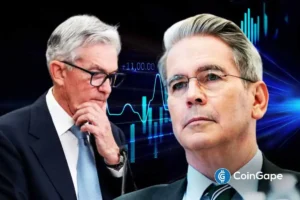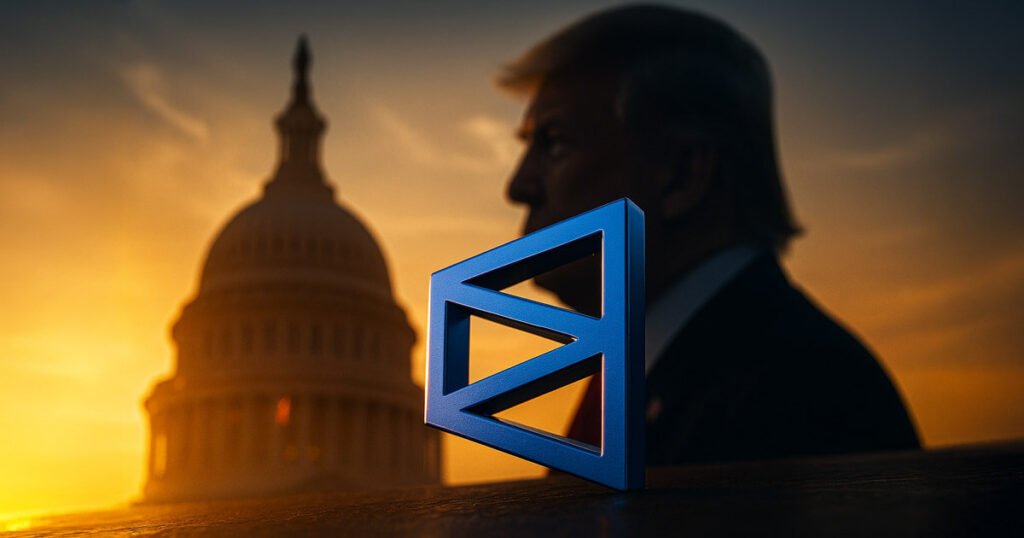Analyzing Low Impeachment Odds for Trump Through Crypto Prediction Markets
In the ever-evolving landscape of American politics, the question of impeachment is always a hot topic. Recently, crypto-based prediction markets, such as Polymarket, have weighed in on the odds of impeachment for former President Donald Trump. As of now, these markets indicate that there is only a 6% chance that Trump will face impeachment proceedings in the House of Representatives before the end of 2025. This modest increase from 5% earlier in the week suggests that despite recent political activities, the likelihood of impeachment remains relatively low.
Polymarket’s terms clarify that the outcome will resolve to “Yes” only if the House approves one or more articles of impeachment against Trump by a simple majority vote before December 31, 2025. Notably, a Senate trial or conviction is not required for the prediction market to validate the outcome. To date, the market has generated over $1.3 million in betting volume, indicating a substantial public interest, yet the low odds reflect widespread skepticism about moving forward with impeachment.
Historical Context of Trump’s Impeachment
Trump’s history with impeachment is significant to understand the current climate. He was impeached twice during his previous term but was acquitted both times by the Senate. This historical precedent plays a crucial role in shaping public and political perceptions, suggesting that failing to convict Trump may insulate him from future impeachment efforts. Given this background, the crypto data implies a reluctance among lawmakers to revisit impeachment as a viable option, further supporting low odds.
Recent Political Developments
The current atmosphere, however, has stirred some new conversations surrounding impeachment threats. Representative Al Green recently introduced an article of impeachment, stating that Trump abused his presidential powers by unilaterally authorizing military strikes against Iranian nuclear facilities. Green’s resolution alleges that these actions threaten American democracy and subvert constitutional governance. Opinions from other prominent figures, including Representative Alexandria Ocasio-Cortez, suggest growing concern among some Democrats regarding Trump’s actions, enhancing the urgency for impeachment discussions.
Trump’s Response
In response to the renewed threats of impeachment, Trump has been vocal about his dissatisfaction with Democrats’ attempts to undermine his presidency. In a post on Truth Social, he derided Ocasio-Cortez and likened her to others who he claims are unable to accept his political successes. He characterized their calls for impeachment as manifestations of the Democrats’ inability to cope with a successful administration, framing the narrative that their "rantings" stem from their discontent with America thriving under his leadership.
Market Dynamics and Public Sentiment
While political tides ebb and flow, the dynamics of the crypto prediction markets serve as an interesting barometer for public sentiment concerning potential impeachment. The fact that the odds for impeachment stand at just 6% implies that even amidst heightened political discourse, a significant portion of the betting public believes that impeachment will not materialize. This demonstrates a certain level of disillusionment with the mechanisms of checks and balances, where calls for impeachment often face skepticism from both the public and legislators alike.
Conclusion
In conclusion, despite the ongoing conversations around impeachment and recent political maneuvers that could signal a shift in Republican and Democratic alliances, crypto-based prediction markets project low odds of Trump facing impeachment soon. The historical context, combined with public sentiment reflected in betting volumes, suggests that significant hurdles remain. As Trump continues to push back against any accusations, the political landscape will undoubtedly continue to shift, but current data indicates that, for now, impeachment remains a low probability event. The conversations, however, are likely to persist as the political factions navigate their strategies in the lead-up to the next elections.

















